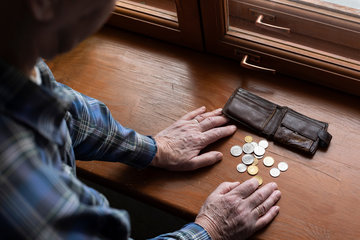Friendliness is more important in a new friend than which group she belongs to
Individual qualities matter more than group qualities when choosing a new friend from an ethnic or religious group other than one’s own
Despite the global headlines emphasizing division and conflict, humans actually have a long history of forming friendships across group boundaries. But which criteria do they use for picking friends from a different group? In collaboration with three populations of horticulturalists in Bolivia, researchers of the Max Planck Institute for Evolutionary Anthropology and the University of California Santa Barbara found that we use very similar criteria when choosing friends from among in-group and out-group strangers – individual cooperative qualities are most important in both cases. Only when it comes to dividing limited resources, qualities associated with a group can affect partner preference.

Humans have relied on friends living at a distance, or in different ethnic groups, throughout history and prehistory. Out-group friends can help us get access to resources when they are not available locally or when they run out. Even though many of us now buy most or all of what we need to live day to day, friends at a distance remain important: all that has changed are the relevant resources. When it comes to picking a new out-group friend, we may not only pay attention to whether or not she seems like a cooperative person; we may also pay attention to whether or not her group has access to important resources.
To study the extent to which individual qualities and group qualities are important in picking an out-group friend, Anne Pisor of the Max Planck Institute for Evolutionary Anthropology in Leipzig, Germany, and Michael Gurven of the University of California Santa Barbara, USA, collaborated with three populations of horticulturalists in Bolivia. Horticulturalists traditionally rely on slash and burn farming, fishing, and hunting; however, horticulturalists in Bolivia are increasingly buying and selling goods in markets, and these three populations vary in their market participation. As individuals participate more consistently in markets, they are exposed more to individuals from other ethnic and religious groups, and the importance of friendships with members of these groups can change.
Pisor conducted an experiment in which each participant was given money that she could give away to strangers from the same or from a different ethnic or religious group, or that she could keep for herself. Each participant was shown pictures of these individuals and told that any money she sent to each person would be given to that person in her name. Pisor also asked participants to report their perceptions of each candidate recipient in several domains, and to report the benefits, costs, and stereotypes they associated with the recipient's group.
She and Gurven found that regardless of whether candidate recipients were from an in-group or an out-group, participants always showed a preference for recipients they thought were “good people” -- that is, friendly and open, in Bolivian Spanish -- by giving them more money. “This is something I find again and again in Bolivia,” Pisor says. “Having a friend who is a ‘good person’ is important above all else.”
However, the fact that the experiment measured interest in out-group friendship with money led to some informative twists in the findings. “People preferred more wealthy in-group recipients, but didn't want to tell me they did,” says Pisor. “Participants were more likely to give money to in-group recipients everyone else rated as wealthy, but they themselves said were not wealthy -- in other words, they were probably perceiving these recipients as wealthy too, but telling me the recipients were in need in order to justify giving them money.”
Pisor and Gurven also did not find any consistent effect of group qualities on preference for out-group friends, except where money was concerned: while the stereotypes a participant knew about an out-group did not affect her giving to individuals from that group, participants from the Tsimane’, one of the three populations, gave much less to out-group recipients if they perceived the out-group as having more market access. The Tsimane’ have less market access than the other two populations, and also are regularly discriminated against by out-group members. “Given a long history of exploitation by other populations, Tsimane’ participants may simply prefer to give to other Tsimane’ instead of wealthier out-groups they could potentially benefit from,” says Gurven. “This is consistent with other studies, which suggest that as close-knit communities become more market-integrated, they sometimes keep money close to home.”
“While these results are specific to the Bolivian context, they suggest that in general, whether we are picking new friends from the same ethnic or religious group as ourselves, or from a different ethnic or religious group, we may use very similar criteria when choosing them”, says Pisor. “Individual qualities matter more than group qualities in this context, and cooperative qualities are the most important.” The fact that group qualities matter only when members of one group perceive themselves as having a lot less than another group, or regularly are discriminated against by this other group, is consistent with research in social psychology, which suggests that group boundaries are broken down only when two groups have a common ground. “This is the next step for us,” says Pisor. “Finding out how well an individual's interactions with out-group members have to go for her to want to befriend members of that group.”
AP, SJ/HR












